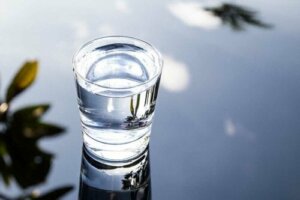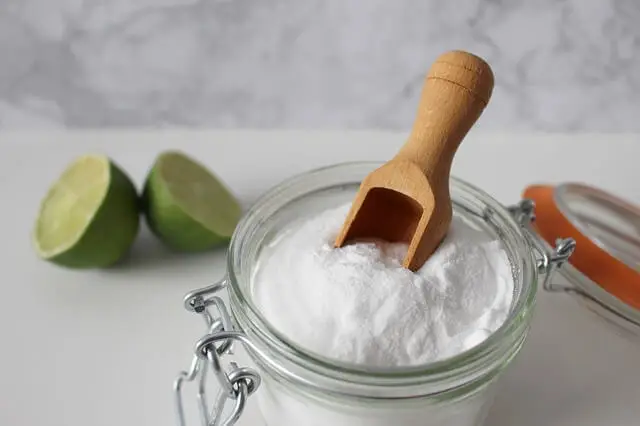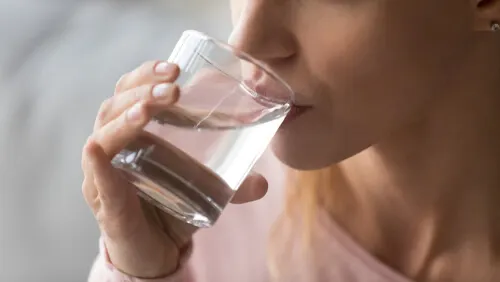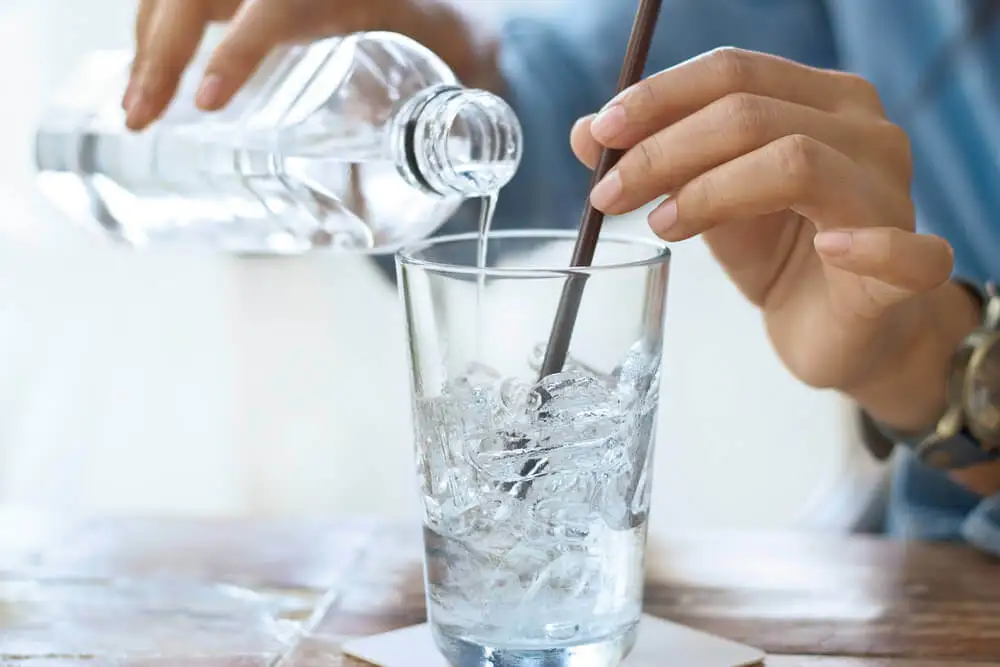How to Make Alkaline Water and its Benefits


Reviewed and approved by the doctor Nelton Abdon Ramos Rojas
Alkaline water is an ionized liquid that supposedly could provide several health benefits. It could help the body eliminate the acidic residue it produces in the process of digestion, which would help keep the pH balanced.
In short, this drink could correct the body’s basic acid balance. It’s said to contain a negative RPO, which would be an antioxidant. Thanks to the production of hydroxyl ions, it would promote the production of oxygen, thus helping to combat the effect of free radicals and promoting cell regeneration. This would contribute not only to health, but would also help us feel renewed.
How to make alkaline water
There are three homemade tips that supposedly help to get alkaline water. Let’s take a closer look at them below.

Method number 1
- You need to have two containers to hand.
- First, fill one of the containers with water and then pour it into the other empty container from a good height.
- When the water falls, it bubbles and this allows us to get a good level of alkalinity after repeating the process 8 times or more.
- The water we use has a pH of 7.2 and this method will allow us to increase it by at least 5 tenths, which although not much, is supposedly good for alkalizing the body.
Method number 2
- The second method to obtain homemade alkaline water is to boil water for 5 minutes. After this time, the water will go from a pH of 7.2 to a pH of 8.4, which will alkalize the body.
- Some say that you should drink it hot, but the truth is that when it cools down it still retains the alkalinity.
Method number 3
- The last home method we can use to alkalize water is to add half a teaspoon of baking soda to a glass of tap water.
- By doing so, the water will go from a pH 7.2 to a pH of 7.9.
- Keep in mind that to be considered alkaline, water must exceed a pH of 7.3 and from there, the higher it goes, the more alkaline it will be (although, obviously, we shouldn’t let it go too high).
What are the benefits of drinking alkaline water?

The benefits attributed to alkaline water are not scientifically proven and, therefore, cannot be said to be totally trustworthy. However, we’ll discuss them for you to analyze.
1. It helps good digestion
In addition to contributing to the elimination of accumulated toxins through the urine, alkaline water could help in giving us good digestion. This would be possible because, by balancing the body’s pH, it would maintain stomach health.
2. Preventing disease and infections
As it would help maintain good hydration, people say that alkaline water could help prevent kidney disease and urinary tract infections. However, there’s no evidence to prove this theory.
3. It could prevent premature aging
The accumulation of toxins wouldn’t only damage health but would also cause premature aging of the skin. Therefore, it’s believed that, drinking alkaline water, it could eliminate these toxins and, of course, prevent premature aging.
4. It would combat fluid retention
Like normal water, alkaline water could help hydrate and combat fluid retention. And, by helping to eliminate waste through urine, it would help restore the body’s balance.
It’s believed that, by balancing the pH, cells wouldn’t need to retain fluids to fight acidity. It would also kick-start the metabolism.
5. Preventing osteoporosis
Drinking alkaline water could promote the elimination of solid wastes, such as uric acid and kidney stones, through the urine, thereby helping to prevent osteoporosis. The drink would help to release the calcium that was trapped in this residue, thus helping the blood to return to an alkaline pH.
Find out: Six Diet Tips to Prevent Osteoporosis
What do experts say about alkaline water?
- Adriana Mañas, scientist and Ph.D. in Cellular and Molecular Biology, points out that alkaline water isn’t a drink that provides real health benefits and doesn’t help delay (or prevent) aging.
- J.M Mulet, Ph.D. in Biochemistry and Molecular Biology, clarifies that alkaline water is a commercial proposal that has no scientific basis.
- Julio Basulto, an expert in Diet and Nutrition, points out that there are several erroneous beliefs about water consumption.
- It isn’t necessary to drink two liters of water a day; this is a myth. To cover daily hydration needs, it’s necessary to drink according to thirst.
- To know if you’re drinking enough water, you need to pay attention to your urine. If your urine is light in color, then you are drinking enough. If it’s dark and has a strong odor, then you need to drink more water.
- There are acute dangers associated with both inadequate water consumption and excessive water intake (hyperhydration).

Of course, you can drink alkaline water if you want to. However, health experts say that this isn’t a recommended option, let alone something you must do.
Adopt a healthy lifestyle, follow your doctor’s recommendations, and maintain consistency in your habits, as this is what can bring real benefits to your health.
All cited sources were thoroughly reviewed by our team to ensure their quality, reliability, currency, and validity. The bibliography of this article was considered reliable and of academic or scientific accuracy.
- Agua alcalina, ¿verdad o mito? [Documento en línea].
- Aquino, J.M. Mentiras embotelladas: el agua alcalina no mejora tu salud. Verificiencia. [Disponible en línea].
- Pérez, D. Agua alcalina, ¿será milagrosa o es solo una moda? Conoce los mitos y verdades sobre el popular líquido. AARP. [Disponible en línea].
- USGS. (2016). pH: Water properties, from the USGS Water-Science School.
- Riché, E., Carrié, A., Andin, N., & Mabic, S. (2006). High-purity water and pH. American Laboratory.
- World Health Organisation. (2007). pH in drinking-water. Guidelines for Drinking Water Quality. https://doi.org/WHO/SDE/WHO/03.04/12
This text is provided for informational purposes only and does not replace consultation with a professional. If in doubt, consult your specialist.








